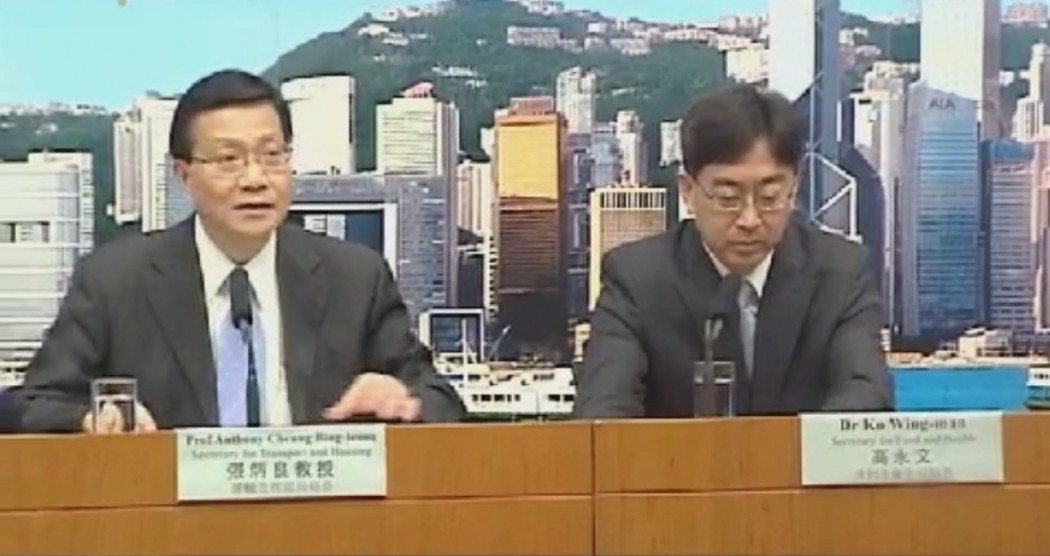Excessive lead has been found in water samples at three more public housing estates, the government has announced.
At a press conference on Monday, Secretary for Transport and Housing Anthony Cheung Bing-leung said, “we don’t think that we are in a situation where things have got out of control.” He maintained that “there is no uniform pattern” showing that excessive lead might be found in estates built by any single contractor.

Tests conducted by the government found that there was excessive lead in three more public estates, including Shek Kip Mei Estate phase II, Tung Wui Estate in Wong Tai Sin and Hung Hom Estate phase II.
One sample found in Hung Hom Estate phase II contained 44.4 mg/l of lead, while the World Health Organization’s safe limit is below 10 mg/l.

At Kwai Luen Estate in Kwai Tsing, 33 blood samples collected from 294 residents contained a value higher than normal, including 24 children under 6 years old, eight lactating mothers and one pregnant woman.
Previously, the government had checked 314 residents from Kai Ching Estate in Kowloon City, 23 of whom had blood samples that contained a higher than normal lead value.
Secretary for Food and Health Ko Wing-man said the government has increased the upper age limit for children eligible for testing from 6 to 8 years old. “We have used discretion in this matter, as some parents were worried that they moved in before their children reached 6 years old.” But Ko also mentioned that the government cannot raise the age limit again, as it is examining more and more public estates. “It may affect the chances of more vulnerable groups of children below the age of 6”.
The lead contamination was revealed in early July following a water sampling investigation in Kai Ching Estate. Water samples at other estates were subsequently found to have contained lead, turning the scandal into a citywide concern.
